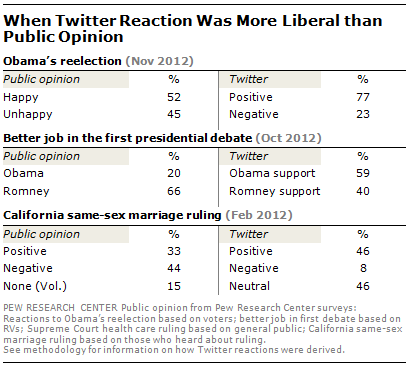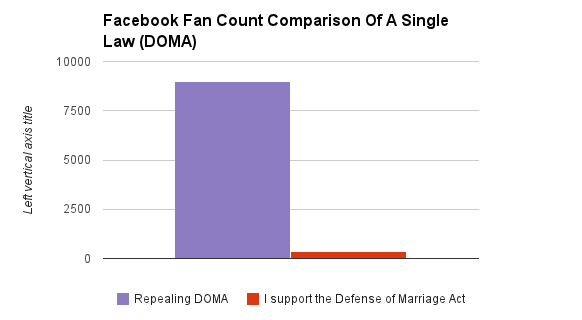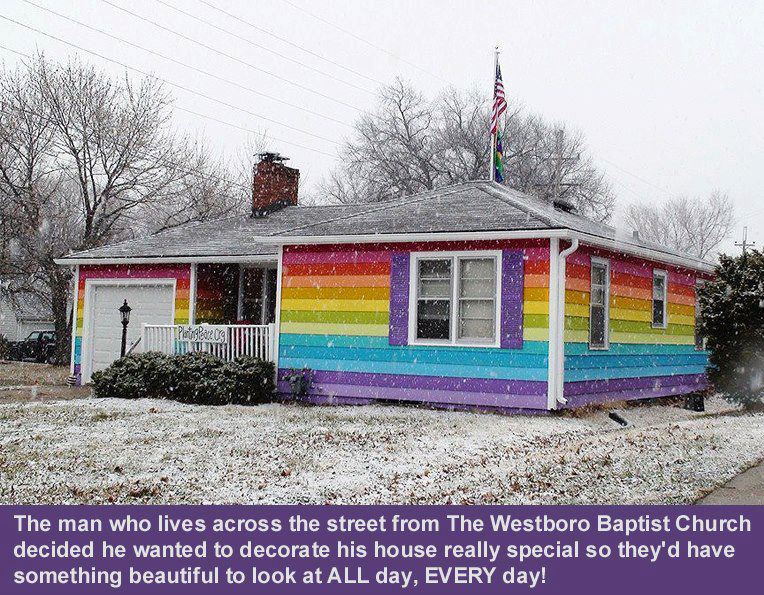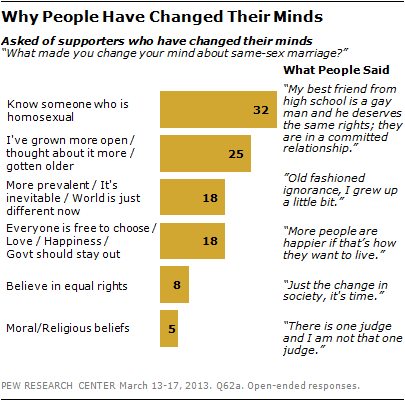
CrunchGov Essential is a scannable roundup of technology’s influence on the day’s big issues. Below a feature post, we present the most thoughtful, outrageous, and inspiring stories told through the web’s best content. Sign up for the morning newsletter here.
How The Internet Helped Gay America Come Out Of The Closet
The U.S. has always included a sizable population of gay citizens. Without a way to coordinate their latent collective powers, discrimination and isolation forced them into the shadows. As the U.S.
slowly inched its way toward tolerance, the Internet, as a soapbox for young liberals, became a
powerful platform to expose otherwise oblivious Americans to their gay neighbors, backed by the full force of unrelenting digital activism.
As social media explodes in celebration over the Supreme Court’s decision to overturn the Defense of Marriage Act, it’s important to look back at how the Internet built the momentum for this historic occasion: The liberal bias of the Internet helped dominate the discussion online and then transform previously conservative institutions with the power of their own gay members.
Opposition, Erased From The Online Conversation
The Internet has always been a haven for young activist liberals, especially it’s early ivory-tower adopters. Compared to the rest of the U.S., Twitter and Facebook are environments that welcome recently outed gay citizens and promote equality. To the extent that the Internet is becoming the epicenter of national dialogue, the overwhelming liberal bias tips public policy in favor of equality.
To get an idea of just how liberal the Internet is, Pew found that the average sentiment of Twitter updates was 25 percent more positive about Obama’s re-election than a national representative public opinion poll. On marriage equality, Twitter was decidedly more favorable (33 percent vs. 46 percent) and there was virtually zero negative sentiment (44 percent vs. 8 percent).

Twitter isn’t the only social-media friend of gay rights. A comparison of the Facebook fan counts between gay rights-related pages reveals a struggling religious right. A top Facebook page in favor of marriage equality, Gay Marriage USA, has more than three times the fans as The Family Research Council (300,000 vs. 100,000). A fan page to repeal the Defense of Marriage Act (DOMA) has 30 times more fans than ones dedicated to keeping DOMA intact.


Engagement for Gay Marriage USA is overwhelming. A picture of a rainbow-painted house sitting conspicuously across the street from the Westboro Baptist Church has 100 times more shares than a top update from the Family Research Council, a prayer for the Supreme Court.

The religious right has struggled to spin its issues that users feel comfortable sharing. “Defense of marriage,” and “pro-life” are still stuck with hateful undertones. Straight marriage defenders don’t want to speak up, liberal voices take their place in the conversation vacuum and, as a result, the opposition to gay marriage is being erased from online discussions.
A Latent Power Inside The Boy Scouts
No one was more shocked by the Boy Scouts’ ban on gay scouts in the late 90s than their own regional leaders. “It never dawned on me that we weren’t supportive of gay scouts,” says Mike Harrison, a former chairman of California’s Orange County Boy Scout Council. “We’re just busy serving kids and running a program.” Discrimination abruptly entered their world when the Scouts expelled decorated Eagle James Dale.
According to a few voting members of the Scout leadership that I spoke to, the initial ban on gay students was more a product of ignorance than discrimination. The obsessively representative executive board conducted a series of surveys to understand whether their intuitions were correct and, up until 2012, internal surveys showed that a slim majority did, indeed, support the ban.
So without much deliberation, the executive council maintained the position. Then, the backlash started: veteran leaders quit, corporate sponsors pulled out, and an army of activists continued to erode the once morally pristine student organization.
A flood of Change.org petitions continued to get headlines, as heartwrenching stories of banned gay Scouts amassed millions of supporters. One petition alone, to reinstate banned lesbian den mother, Jennifer Tyrrell, swelled to over 300,000 signatures.
“The reason online petitions made such a big impact — Change.org in this instance — was that it gave petition starters a platform to tell very effective stories,” said gay rights activist Zach Wahls. Instead of faceless rumors of expelled Scouts, petitions highlighted real people in their own voices.
Indeed, Wahls himself became a civil rights icon after testimony he gave about his lesbian mothers in front of the Iowa legislature went viral on YouTube (currently over 17 million views on the main video).
Despite the internal surveys, the overwhelming online pressure forced the scout leaders to hold a more deliberative conversation before the eventual vote that overturned the ban in May.
Behind the closed-door discussions, the Internet played a hand, as well.
Northeast executive board member Jay Lenrow recalls one voting member quoting a study from the anti-gay American College of Pediatrics, which ominously predicted that allowing “gays in would lead to boy-on-boy sex and bullying by older gay scouts, of young scouts trying to force them into a gay lifestyle”.
Immediately, Harris’s friend, a board certified orthopedic surgeon, “stood up with his iPhone,” and began to school the crowd about the difference between a faux group and a recognized medical institution, the American Academy of Pediatrics. He proceeded to dispel the gay agenda rumors, reading directly from the research that AAP produced.
Dispelling myths blunted the spread of doubt. Ultimately, however, academic research doesn’t change minds — but having a gay family member or friend does. National support for marriage equality has steadily climbed from 33 percent to a slight plurality (49 percent) a decade later. Of those who changed their minds, one-third (32) “say it is because they know someone – a friend, family member or other acquaintance – who is homosexual,” according to a Pew poll.

“What the power of the Internet does is allows people to connect with each other,” says Wahls. “For many young gay kids, growing up 20 or 30 years ago, they thought they were the only ones. But today, in 2013, you can discover very, very quickly that that isn’t the case.” Online support has fueled a cycle of coming out and acceptance, exposing more and more Americans to their gay neighbors, friends and family members.
Fascinating enough, the demographic that has made the greatest percentage gains in support of marriage equality is the “silent generation,” those born before WWII ended (1925-1945). True to course, the deluge of Scouts coming out of the closet made its way to one of the organizations oldest and respected members, Jack Coughlin. A Scout of 77 years, Coughlin had one of his four sons come out to him shortly after the James Dale decision. After educating himself about homosexuality, he came to understand it as biological fact of life — a perspective he shared with his skeptical colleagues during crucial regional meetings leading up to the May vote.
Coughlin argues that widespread associations with gay friends and family members were “a major factor” in the decision to eventually overturn the ban. After Coughlin’s regional meeting, his colleagues approached him saying, “I’m going to vote for change, because I have a gay daughter.”
Three months later, the Boy Scouts would accept gay Scouts and one month after that, the Supreme Court would make equality the law of the land.
Essentials: 5 Items
1. Viral Texas Filibuster Defeats Anti-Abortion Bill [Wonkblog]
- Texas State Senator Wendy Davis went on an 11-hour marathon filibuster to block a Texas law to close abortion clinics.
- #StandWithWendy quickly became a trending topic on Twitter, including a retweet from President Obama.
- Late last night, more than 180,000 people were reportedly watching the YouTube live stream.
2. Putin Protecting Snowden [CBS]
- Russian King/democratically elected President Vladimir Putin indicates he will not extradite NSA whitsleblower Edward Snowden.
- Snowden is currently holed up in a Moscow airport and is reportedly en route to Ecuador for asylum.
3. Social Media Boosted Organ Donation Registration 2,000 percent [thegovlab]
- The American Journal of Transplantation found that allowing Facebook users to broadcast their organ donation statuses vastly increased donation registration.
- “Facebook push produced a rather mind-boggling 21-fold increase in organ-donor registrations on the first day of the campaign, with 13,012 people signing up to become organ donors, compared to the usual daily average of 616.”
4. Immigration Vote Set For Wednesday (Politico)
- A crucial Senate vote on border security within the comprehensive immigration reform bill is slated for Wednesday.
- The so-called “border surge” amendment would vastly expand border security in an attempt to bring security hawks on board with the struggling immigration-reform bill.
5. Internet Loves Love
The Internet is going crazy over the Supreme Court’s decision to strike down DOMA and uphold a lower court ruling to overturn California’s anti-gay marriage Proposition 8. Here are the funniest and most inspiring and thoughtful updates:
https://twitter.com/BuzzFeedAndrew/status/349923070208794624